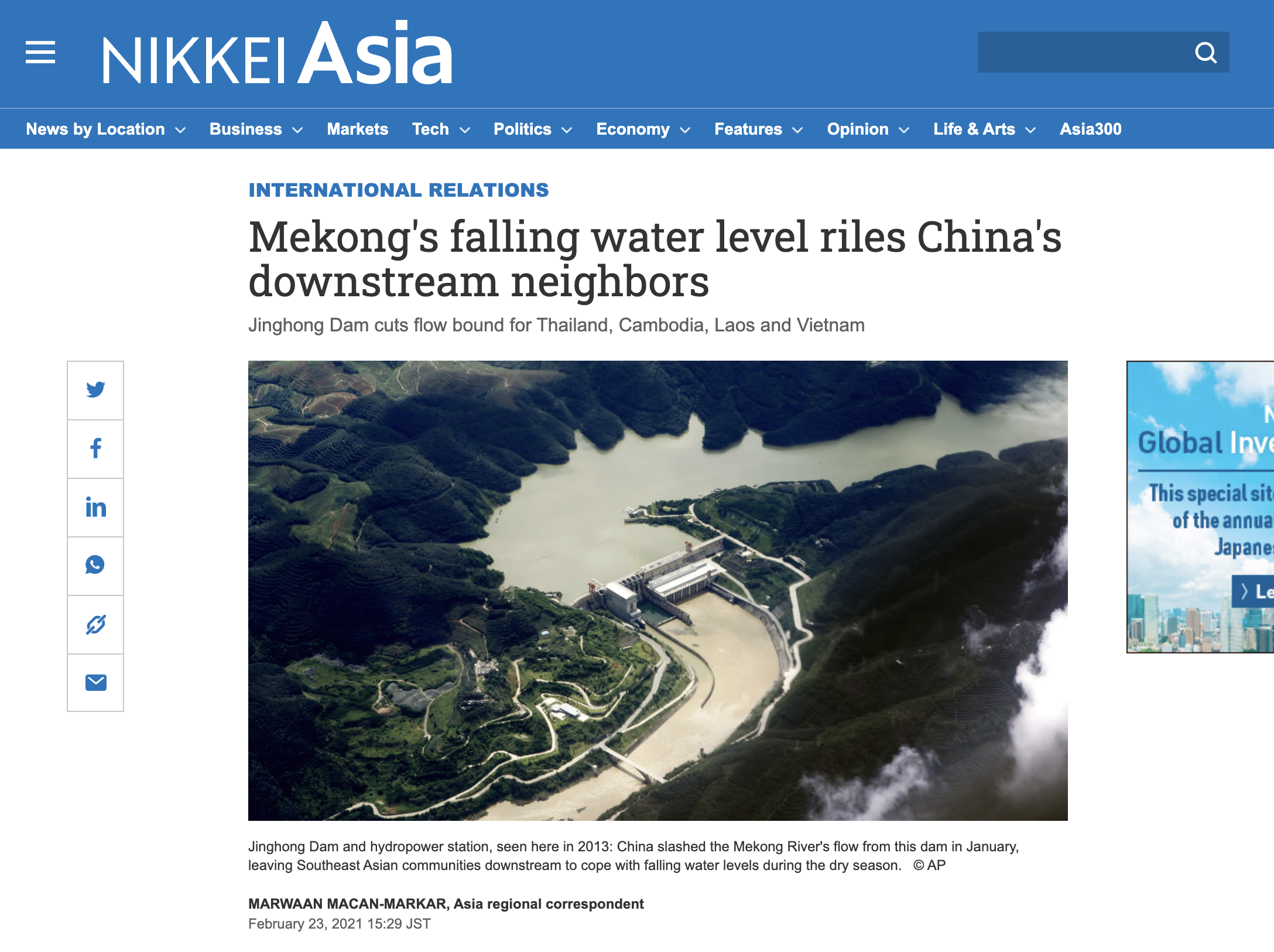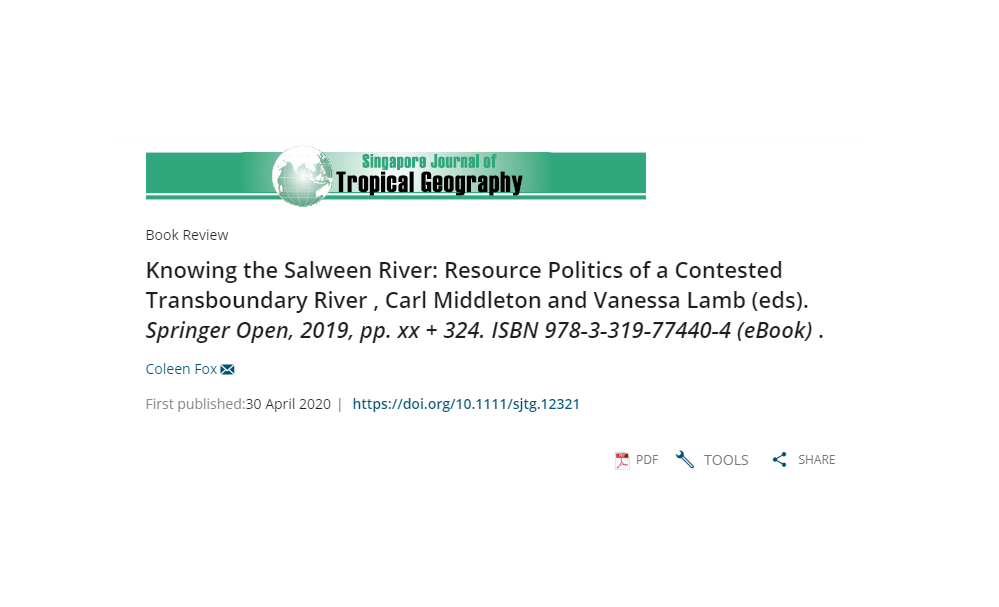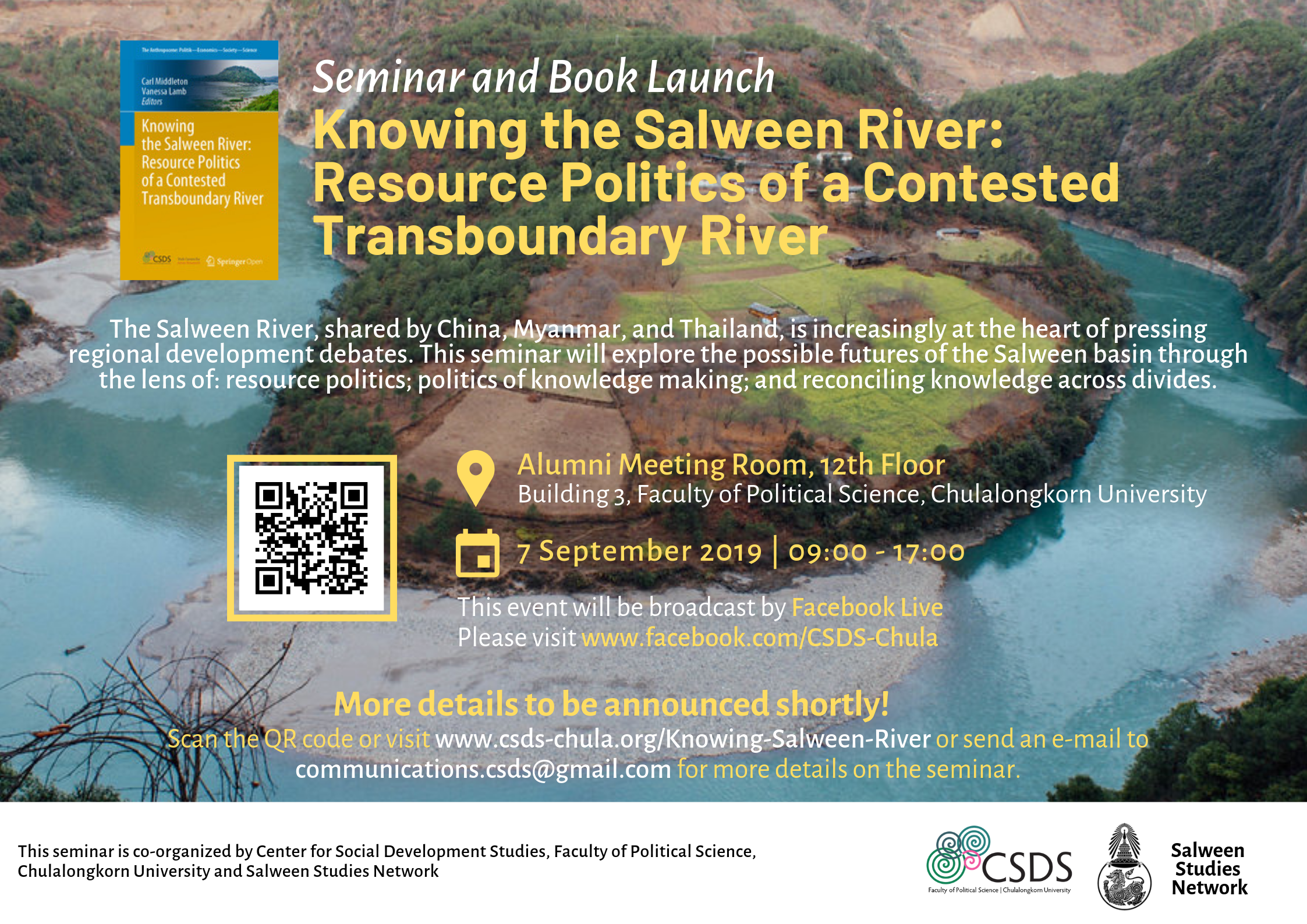UPCOMING EVENT: Towards a Green and Just Recovery in Southeast Asia [28 November 2022]
/Towards a green and just recovery in Southeast Asia: Climate futures, sustainable transformations, and the role of China
28 November 2022, (broadcast on CSDS Facebook page; participate via Zoom with registration) and in-person at Faculty of Political Science, Chulalongkorn University, Bangkok, Thailand
Co-organized by Center for Social Development Studies (CSDS), Chulalongkorn University; Chulalongkorn University UNESCO Chair in Resource Governance and Futures Literacy; and China Dialogue Trust.
Please download the final agenda with speakers here.
Please register to join the event here.
In-person event: Alumni meeting room, 12th Floor, Faculty of Political Science Building 1 (Kasem Utthayanin Building), Chulalongkorn University, Bangkok, Thailand
Mainland southeast Asia faces a ‘polycrisis’, as climate change, conflict and Covid intersect with rising economic and geopolitical headwinds. Meanwhile, an environmentally unsustainable model of development has degraded ecosystems and biodiversity. The unequal social consequences of these crisis mirror broader socio-economic and political inequalities in the region.
In response, calls for a ‘green and just recovery’ policy agenda have grown, although its formulation is not clear or agreed upon. For example, how does it intersect with agendas at UN-led processes such as the COP27 climate talks, or the ‘UN Guiding Principles on Business and Human Rights’? Or with China’s vision for a ‘green Belt and Road’? How does it reflect civil society-led agendas, such ‘the commons’ and ‘Rights of Nature’? These questions are important as competing calls for a ‘sustainable transformation’ also imply future visions of society, international relations, and nature-society relations.
In this public seminar, we bring together journalists, scholars and civil society to ask what a ‘green and just recovery could look like in the region and how it can be achieved. As COP27 closes in Sharm el-Sheikh, we take climate change, rivers, and energy as entry points to explore the wider socio-political opportunities and challenges towards achieving ‘sustainable transformations’.
For enquiries, please contact Dr. Carl Middleton.













